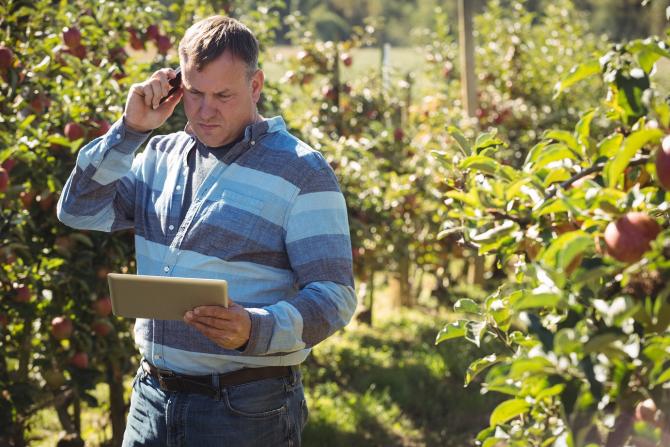Highlights of the e-consultation on "Ethical, legal and policy aspects of data sharing affecting farmers"

The Global Forum on Agricultural Research and Innovation (GFAR), the Global Open Data for Agriculture and Nutrition initiative (GODAN), the Technical Center for Agricultural and Rural Cooperation (CTA) and the Kuratorium für Technik und Bauwesen in der Landwirtschaft (KTBL) held an e-consultation on ethical, legal and policy aspects of open data affecting smallholder farmers.
The forum took place on the e-Agriculture platform from 4th till 8th of June 2018.The purpose of the e-consultation was to solicit views from the community on issues affecting smallholder farmers in developing countries not harnessing the power of open data.
The consultation sought to uncover the challenges related to accessing relevant data and services provided by others and ensuring that the data that farmers share does not actually weaken their positions.
The consolidated contribution and conclusions fed into a high-level expert consultation that will take place in July 2018.The consultation was guided by the following five themes, with each day having a subject matter expert to open and facilitate the discussions.
- Day 1: Major challenges from a policy legal and ethical perspective, preventing smallholder farmers benefiting from data sharing.
- Day 2: Desired scenarios for a future where data-driven agriculture is successfully adopted by smallholder farmers
- Day 3: Long-term ethical, legal and policy changes needed to move from the current scenario to the desired scenarios
- Day 4: Actions to be taken in 2018-2021 to ensure smallholder farmers benefit from agricultural data in the future
- Day 5: Summarize the salient points of this discussion and recommend priority aspects for the f2f consultation
Main themes of the conversation
The following were common emerging key themes during the discussion
Consideration of self-regulation socio-economic aspects – the participants of this discussion forum advocated for the self-regulation if farmers are to benefit from the data-driven agriculture. The mutuality of benefit between farmers and other players was also highlighted.
Ethical Issues: the good of the farmer and the greater good – Many common views on farmer's right to data were expressed on ethical grounds. Some of these rights include the right to own, control and monetize their own data; the right to participate in decision-making processes; the right to have access to data when needed to external data and to share it with other farmers; prior informed consent for the use of their data and benefit-sharing arising from the use of their data.
Ethics and socio-economic aspects: power imbalances - Farmers were perceived to have little control on flows and use of data, information and knowledge in an agri-food system. There was a consensus in ensuring that there was fair participation by the farmers in open, free agricultural markets – this was gleaned from the experience of farmers not being involved in policy making.
Policy issues: openness - Many participants noted the advantages of open data and how openness can benefit the farmer. Yet there were misgivings regarding total access to data, with one participant noting that open access should be to some data but not to all. The discussion reiterated that the sharing of data should be transparent and fair to all actors and stakeholders in the agricultural value chains.
Legal issues – Concerning the legal issues, it was noted early in the e-consultation that in relation to farming and agriculture there are no specific examples of national policies or laws that concern with the generation, flow, sharing and use of data. Mostly, there are non-binding charters and instruments which are weak in protecting the farmers. There was a push towards advocating for legislative protection.
Governance options - Participants proposed or foresaw several different options for the future. For example, the following were given, Governance by farmers, inter-institutional cooperation, trust organization and data cooperatives.
Desired scenarios
Contributors agreed that there is no one desired scenario for all contexts and yet participants proposed some examples. One-person proposed that farmers can collect their on-farm data and upload it on a shared platform of aggregation and have access to it when needed.
In conclusion, participants offered their views on the next steps to be followed that could help bring direction towards farmers' data rights and open data for farmers.
These above is a snippet summary of the discussion meant only for information purposes, a full summary will be made available in due course.


Post your comment
Log in or register to post comments